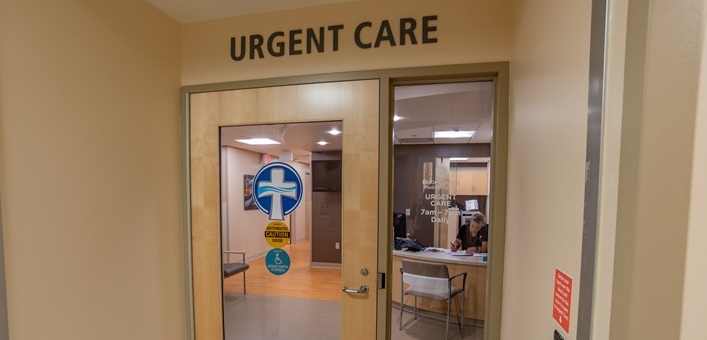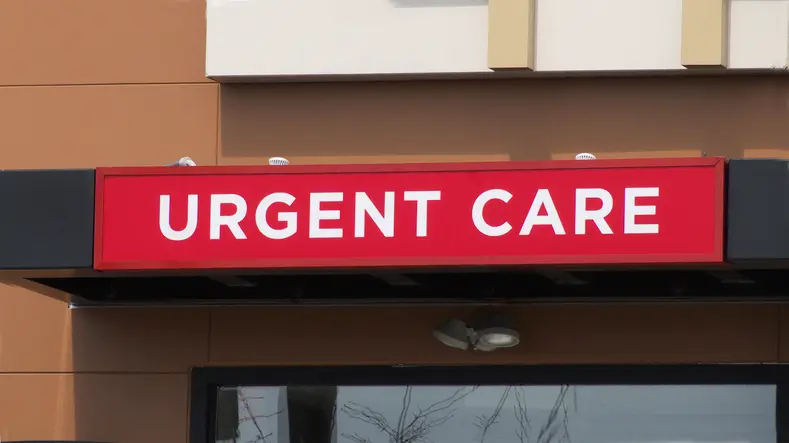Understanding the Significance of Urgent Treatment Solutions for Non-Life-Threatening Medical Issues
The relevance of urgent treatment solutions for non-life-threatening medical issues can not be overstated, especially in today's healthcare landscape. By comprehending the advantages of urgent care, such as minimized delay times and expense effectiveness, one can much better appreciate their function in patient health and wellness management.
What Is Urgent Care?
Urgent treatment describes a classification of medical solutions made to address non-life-threatening conditions that require prompt attention but do not require a check out to the emergency room. These facilities offer a bridge between main care and emergency situation services, supplying obtainable medical care alternatives for individuals experiencing intense medical problems, such as minor cracks, sprains, infections, or severe health problems that arise all of a sudden.

The extent of services given by immediate care facilities can vary yet normally includes treatment for typical conditions like colds, flu, and allergies, along with small injuries (urgent care). Furthermore, several immediate care facilities provide preventative services, such as vaccinations and physical examinations, to address broader health and wellness demands. By using a convenient choice for urgent clinical issues, these centers play a critical duty in the health care continuum, guaranteeing that individuals get suitable care when they require it most
Advantages of Urgent Treatment Services
Many individuals find that utilizing urgent treatment solutions gives considerable advantages over traditional emergency clinic gos to or waiting for a medical care appointment. One primary advantage is the minimized wait times. Urgent care centers generally have much shorter wait periods, enabling individuals to receive timely clinical focus when they need it most. This expedited care is especially handy for non-life-threatening conditions that require prompt treatment.
An additional advantage is the prolonged hours of operation. Lots of immediate treatment centers are open nights and weekends, fitting individuals that might not have the ability to see their medical care doctor throughout normal workplace hours. This adaptability makes it much easier for clients to accessibility care at their ease.
In addition, urgent care services commonly supply an affordable option to emergency clinic. Individuals frequently face lower co-pays and overall costs when seeking treatment for minor conditions at urgent treatment centers as opposed to medical facility emergency situation departments.
Last but not least, immediate care centers are equipped to deal with a selection of non-life-threatening problems, supplying a wide variety of solutions under one roof. This extensive technique not just improves the therapy process however likewise improves client complete satisfaction by providing timely and efficient care.
Typical Conditions Treated
What sorts of non-life-threatening problems can individuals expect to obtain treatment for at immediate treatment facilities? Immediate treatment facilities are geared up to manage a broad array of typical clinical problems that need punctual attention but do not position a this hyperlink prompt risk to life. These centers frequently treat problems such as small cracks, strains, and strains, supplying important look after injuries that take place throughout daily tasks or sports.
Furthermore, clients often look for treatment for breathing infections, consisting of colds, influenza, and respiratory disease, where prompt treatment can reduce signs and symptoms and prevent difficulties. Skin problem such as rashes, insect attacks, and small burns are also frequently dealt with, as timely care can minimize discomfort and lower the risk of infection.

Contrasting Urgent Treatment and Emergency Situation Areas

One considerable distinction lies in delay times; immediate treatment centers usually have much shorter delay times contrasted to emergency areas, which can be clogged with even more crucial instances. This performance permits individuals to obtain timely treatment for their conditions.
From an economic viewpoint, urgent treatment gos to have a tendency to be more economical than emergency situation area sees. Insurance copays and out-of-pocket costs are frequently lower at urgent care facilities, making them a much more affordable option for non-emergency situations.
Exactly How to Select an Urgent Treatment Facility
Choosing the appropriate urgent treatment center can substantially enhance the top quality of care gotten during a non-life-threatening clinical issue. When selecting an immediate treatment facility, numerous crucial elements need to be thought about.
First, analyze the facility's certification and licensing. Some urgent care facilities specialize in details areas, while others offer thorough care for different clinical problems.
Additionally, consider the place and hours of operation. A comfortably located facility with extensive hours can be important for timely care. It's additionally a good idea to examine the facility's delay times and individual testimonials, which can give understandings into the total individual experience.
Conclusion
In conclusion, urgent care services play a crucial duty pop over to this web-site in attending to non-life-threatening clinical concerns successfully. Eventually, understanding the significance of urgent treatment facilities adds to improved healthcare monitoring and individual fulfillment.
Many people find that utilizing urgent care services provides substantial benefits over standard emergency space check outs or waiting for a primary care consultation. Several urgent treatment centers are open evenings and weekends, fitting individuals who may not be able to see their key care doctor throughout regular workplace hours. Urgent treatment centers are made to address non-life-threatening conditions, such as small fractures, infections, and health problems, offering a convenient choice to emergency situation areas for those in demand of immediate treatment. Some immediate care facilities specialize in specific areas, while others offer extensive treatment for different medical concerns.